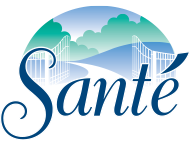What Happens During a Residential Addiction Treatment Program?
After clients go through a professional assessment, a team of addiction specialists, psychologists, and other professionals work to determine the client’s individual treatment plan. They may get dual diagnosis treatment, 12-step support, neurofeedback, or other options.
All of the therapists, psychologists, and mental health professionals in the program have certifications for performing addiction-related therapies. They can help clients heal from grief and childhood trauma. A high-quality residential addiction treatment program includes options like motivational interviewing, EMDR, DBT, and CBT.
Other than individual and group therapy, clients may also go through experiential therapies. These include options like art therapy and a ropes course. Other treatment options include medication management and nutritional counseling.
 Residential Addiction Treatment Program
Residential Addiction Treatment Program
 Residential Addiction Treatment Program
Residential Addiction Treatment Program





